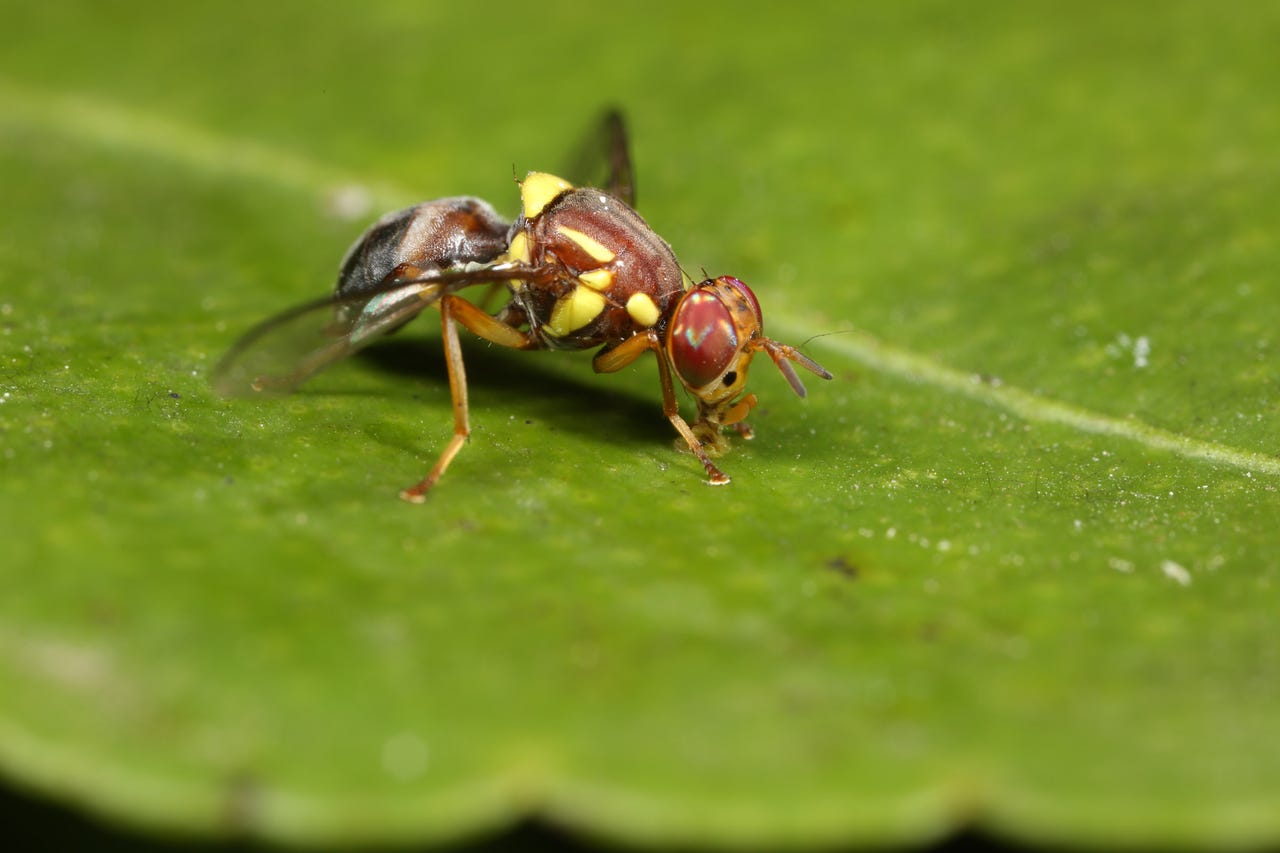CSIRO Innovation Fund backs technology to tackle fruit flies


A startup created by a trio of Commonwealth Scientific and Industrial Research Organisation (CSIRO) alumni has received a AU$1.25 million funding boost from the CSIRO Innovation Fund.
Created by Laura Jones, Darren Moore, and Dr Nancy Schellhorn, RapidAim will use the cash to conduct a trial of its "smart trap" fruit fly monitoring system that is hoped will replace manual trap checking.
Australian Minister for Agriculture David Littleproud said the trial would be conducted across New South Wales, Victoria, South Australia, Western Australia, and Tasmania.
SEE: The Future of Food (ZDNet/TechRepublic special feature)
"The smart traps use lures to attract fruit flies. Females are lured in by food and males by chemicals they think will make them more attractive to female flies," Littleproud said.
"Sensors will be able to detect when a fruit fly is in the trap by their characteristic movements and send an alert to a grower's mobile phone."
RapidAim CEO Dr Schellhorn said the automated traps will not only save time, but could help reduce the use of pesticides through more targeted spraying.
"Our new technology can reduce the time spent checking traps by more than 35 percent, and provides an immediate picture of fruit fly presence in specific locations to enable a rapid response for control," Dr Schellhorn said.
"Around the world, more than 900 million tonnes of insecticide is used to control insect pests every year, but 98 percent reaches a target other than the intended destination."
RapidAim completed a trial last year in Victoria.
Fruit flies ruin fruit and vegetables by laying eggs inside them, with their maggots eating the produce from the inside. The CSIRO said spoiling due to fruit flies costs Australia over AU$300 million each year.
Also: Agriculture 4.0: How digital farming is revolutionizing the future of food (cover story PDF) (TechRepublic) | Smart farming: How IoT, robotics, and AI are tackling one of the biggest problems of the century (cover story PDF) (TechRepublic) | How self-driving tractors, AI, and precision agriculture will save us from the impending food crisis (cover story PDF)(TechRepublic)
The AU$200 million CSIRO Innovation Fund was created in December 2016 to help support new spin-outs, startups, and small and medium-sized enterprises engaged in the translation of research generated in the Australian publicly funded research sector, including the CSIRO and universities.
Data released earlier this week by the Department of Industry, Innovation and Science showed that investment by Canberra in science, and research and development is now at its lowest level since the 2010-11 financial year.
"These new figures come on top of last year's tables which showed that in real terms science, research, and innovation funding has declined by AU$358 million since 2013," Shadow Minister for Innovation, Industry, Science and Research Senator Kim Carr said in a statement.
"The Abbott/Turnbull/Morrison government talks a big game on science and research, but the facts are very different."
Last month, CEO of CSIRO's Data 61, Adrian Turner, said lower research and development spending compared to OECD peers shows something is systemically wrong.
"We're at a fork in the road," he said. "It's now or never for Australia."
Related Coverage
CSIRO using serverless compute to analyse the human genome
The CSIRO is using AWS Lamba to allow analysis of the 20 exabytes of data coming from genomics every year.
CSIRO engaging Australians for energy research
The CSIRO Energise app has been developed to allow individuals contribute to national energy research in Australia.
CSIRO: Lithium-ion battery waste to exceed 100,000 tonnes by 2036
Only 2 percent of Australia's annual 3,300 tonnes of lithium-ion battery waste is recycled, but the CSIRO reckons 95 percent of it can be.
Former CSIRO boss Dr Megan Clark to lead the Australian Space Agency
Australia's space agency has been officially launched, with Dr Megan Clark appointed as the head of the AU$41 million outfit that is currently without a home.
CSIRO to establish government supercomputer panel
While the Digital Transformation Agency looks to overhaul the Australian government's panel procurement process, the CSIRO is moving to establish a panel of vendors to offer scientific compute, data hardware, and related services.
CSIRO fund backs makers of Wi-Fi chips and quantum computing firmware
The Australian government-backed Main Sequence Ventures has announced the first four companies to receive funding.